Beekeeping
…is how bees are nurtured at Hogacre Common, safe in the knowledge that the bees know what they are doing: our job is to listen to them and give them the best conditions for their well-being. Interference with the natural lives of the bees is kept to a minimum and nothing is taken from the bees’ hives that they cannot afford to lose. The bees are cared for by a dedicated group of amateur natural beekeepers with training and equipment provided. In the early summer of 2024 we welcomed Mark and Gulen (from Botley Meadow Bees, justupstream of Hogacre), who have helped to rejuvenate and manage the apiary, sharing their beekeeping experience within our community.
We have a number of bee colonies on site, in a mix of ‘WBC’, horizontal top bar and Warre hives. All these bees need food – so it is very important to develop the biodiversity at Hogacreand to encourage flowering plants. Planting wildflowers and trees here and at home helps the bees by providing food – and the bees help by pollinating the flowers and crops. (Bees forage in every direction for about three miles, so beyond Hogacre Common we can all do our bit by encouraging pollinator-friendly plants).
We hope that the increase in habitats around Hogacre will also help bumblebees and solitary bees – they make up the majority of bee species and are in as much trouble from loss of habitat and pesticides as are honeybees. This will also help many other important insect pollinators, including, hoverflies, wasps, butterflies, moths and beetles.
Bees are important, too, to our landlords – Corpus Christi College. They are one of several ‘totemic animals’ (being associated with hard-work, diligence and efficient co-operation), and are a referenced in the founder’s stated desire to create an institution that would be a ‘hive of [scholarly] activity’. This is remembered in Hogacre’s annual tithepayable to the college – a jar of honey.
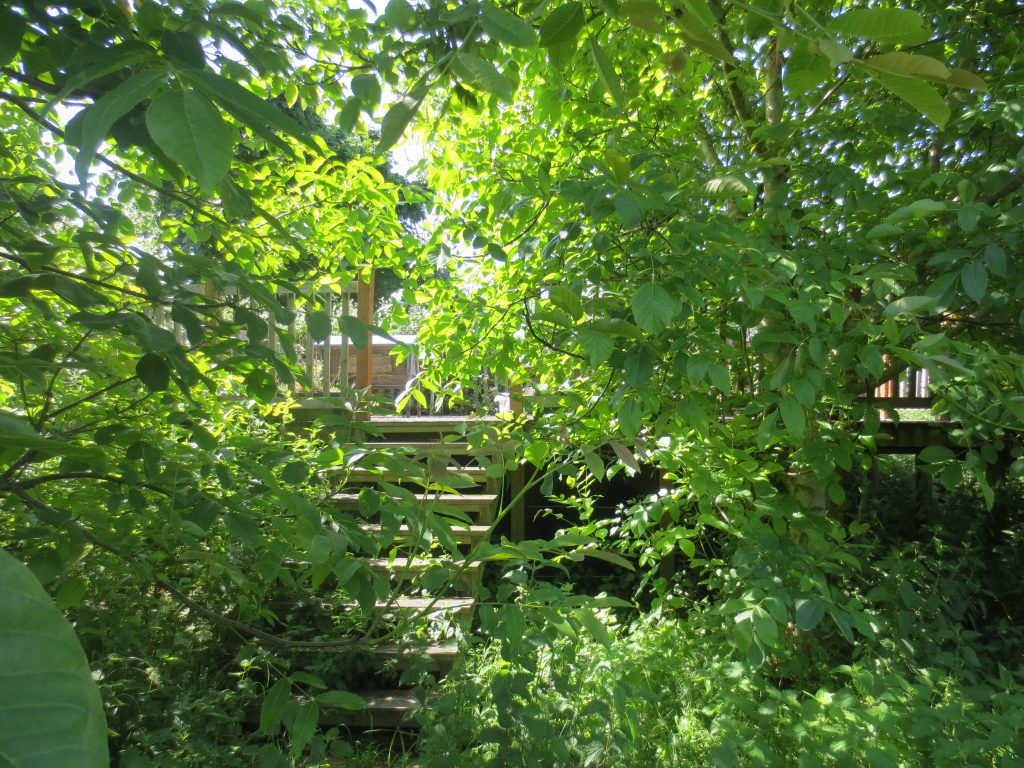
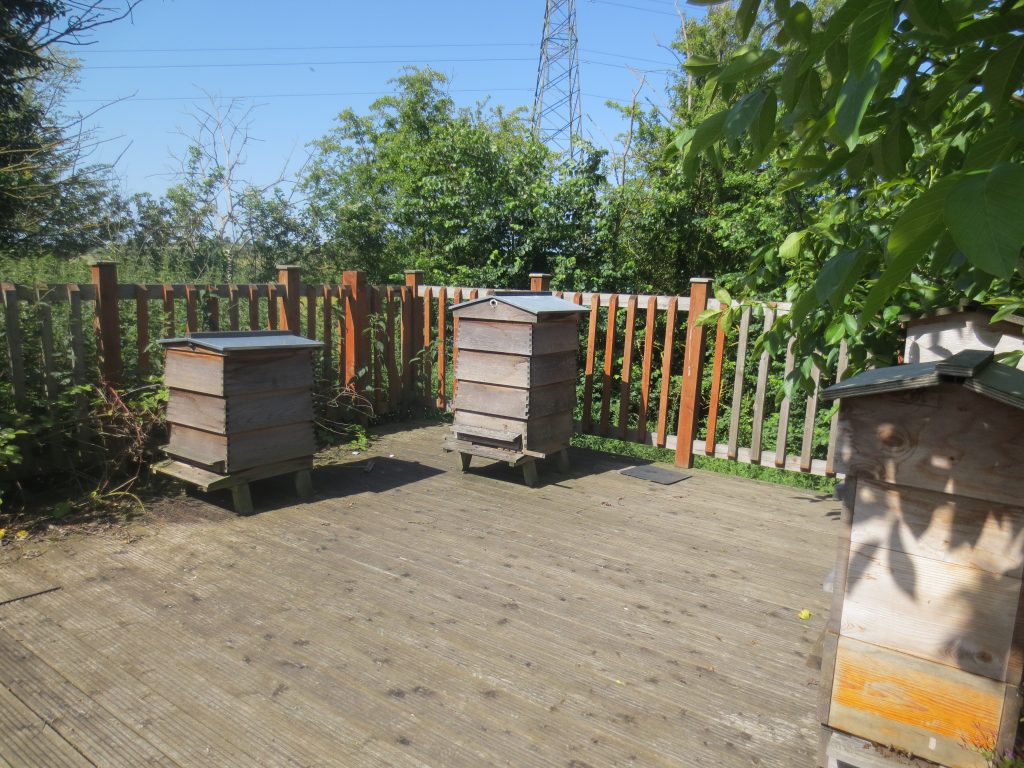
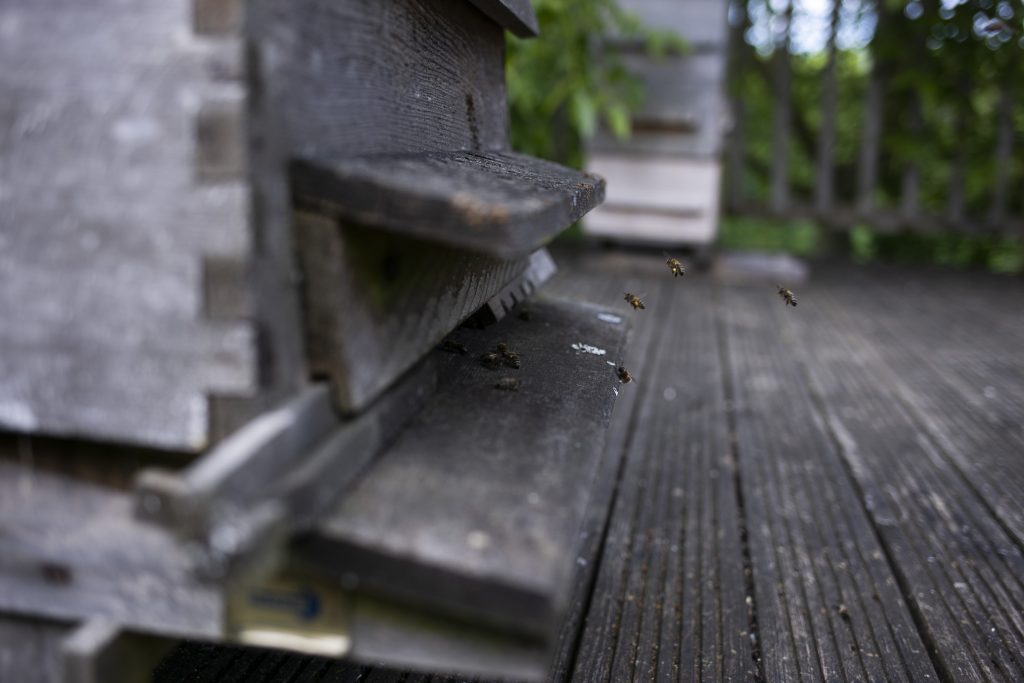
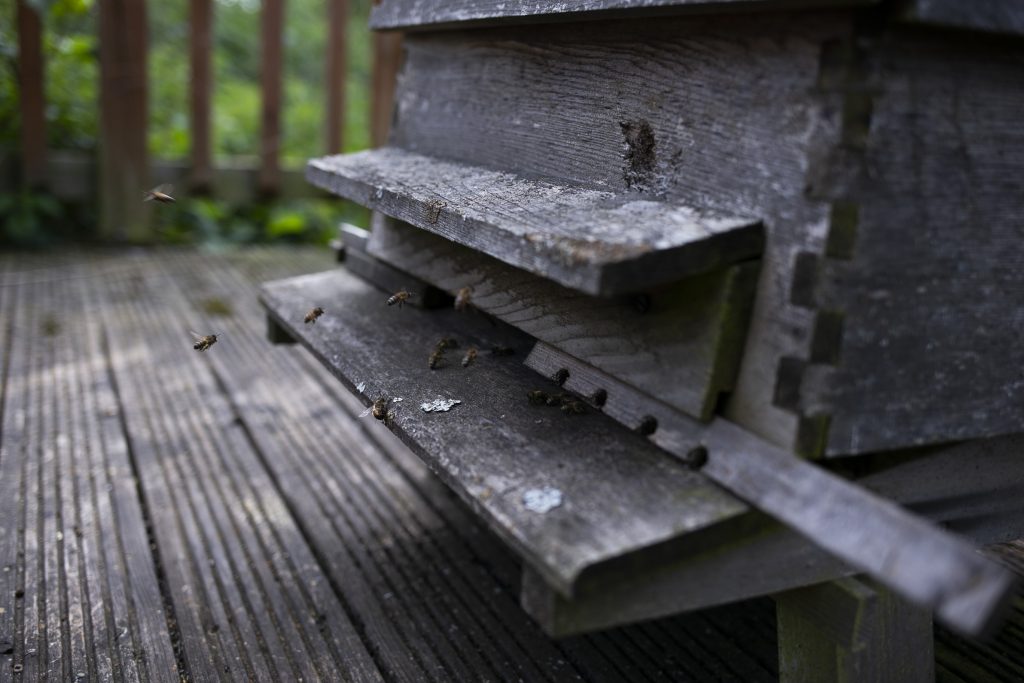
Recent swarm (happily rehoused) – April 2020
Recent bee activity at Hogacre April 2020. All five inhabited hives survived the winter and are extremely busy when the wind dies down and the temperature rises. This swarm has been successfully rehoused in one of our ‘top bar’ hives.
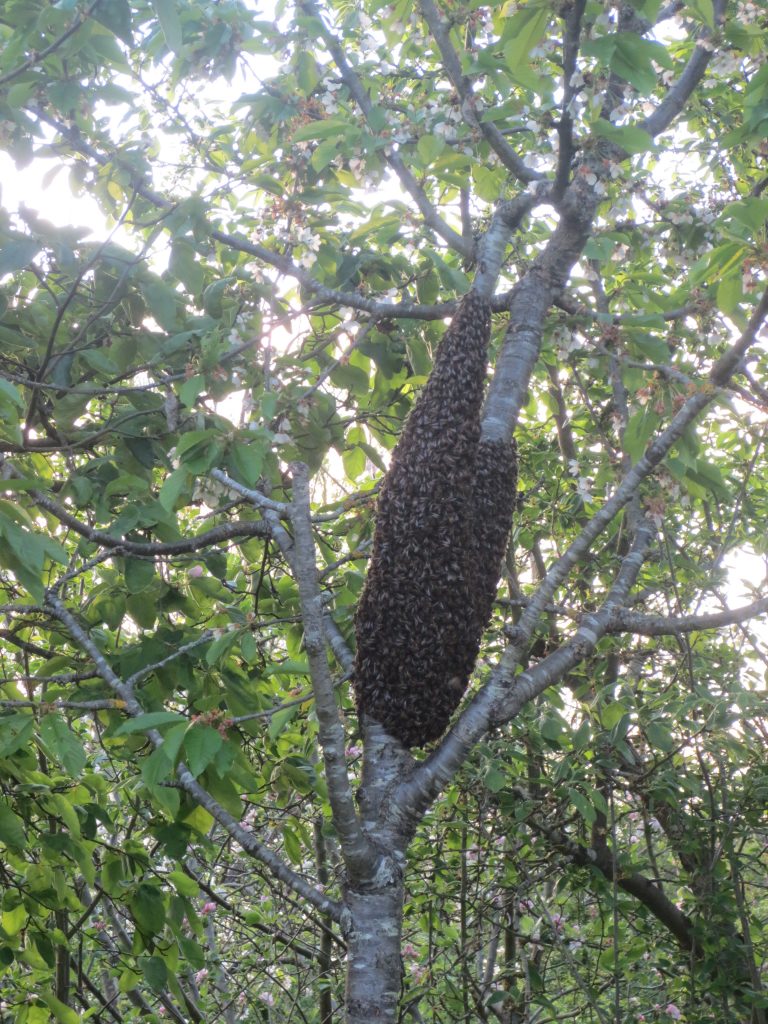
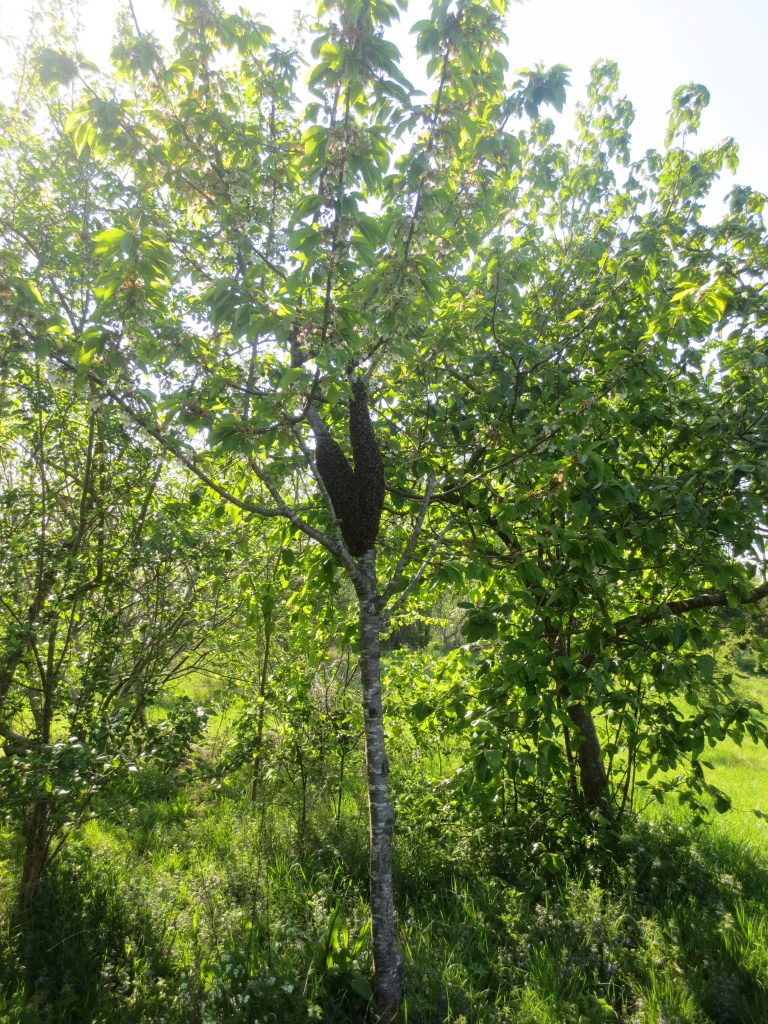
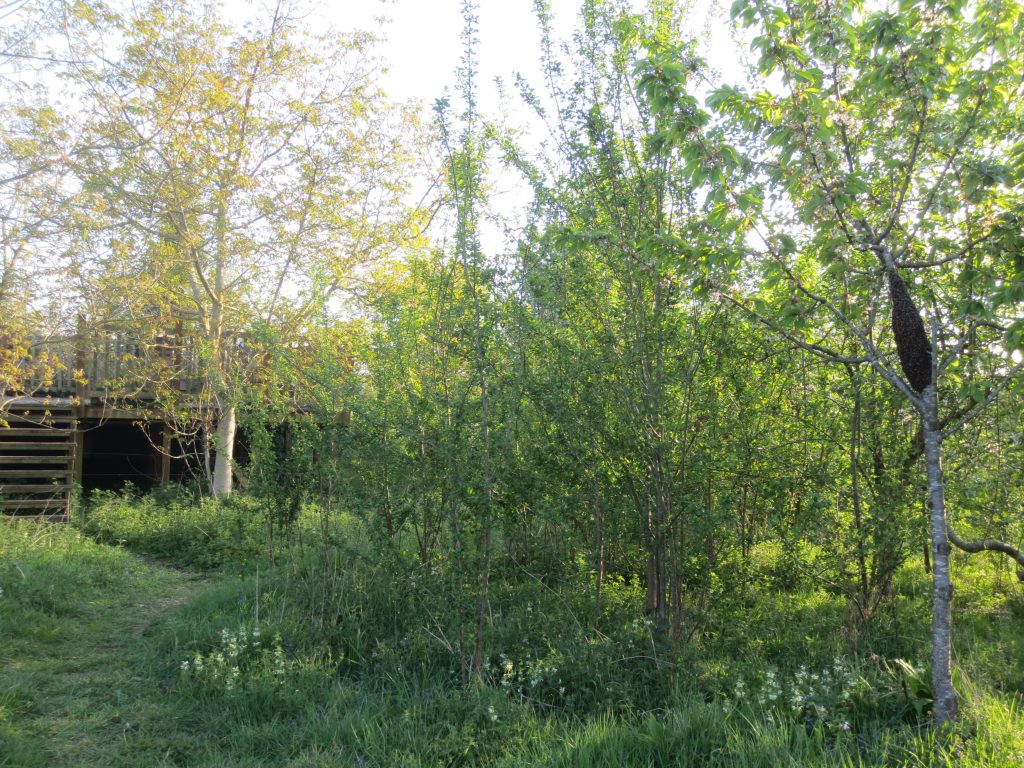
Thanks to local Chilswell Rd residents for bravely spring-cleaning the bee platform!
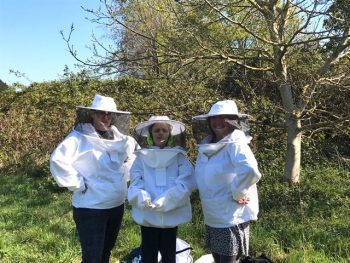
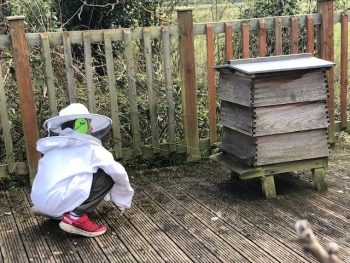
(Taking PPE to the next level)
Recent bee activity at Hogacre (2024)
During the spring inspection, five hives were found to be already inhabited, though it was apparent that over-wintering mice had caused some damage. Then, following some apiarymaintenance, two of the empty hives managed to attract new swarms in the early summer. Normally we might introduce new colonies from locally caught swarms, but it’s especially pleasing when they move into an empty hive of their own accord!
During the summer the colonies were given additional hive space as they grew in size. At the end of the season, the seven colonies were observed to be generally strong, and well stocked for the winter; for the first time in a couple of years there was a significant excess of stored honey.
In October we prepared for winter by adding mouse guards to hive entrances (to deter those pesky hibernating mice), repaired and replaced some of the weather-damaged external hive parts, and renewed the older Warre hive “quilts” to improve conditions for the bee clusters within.



